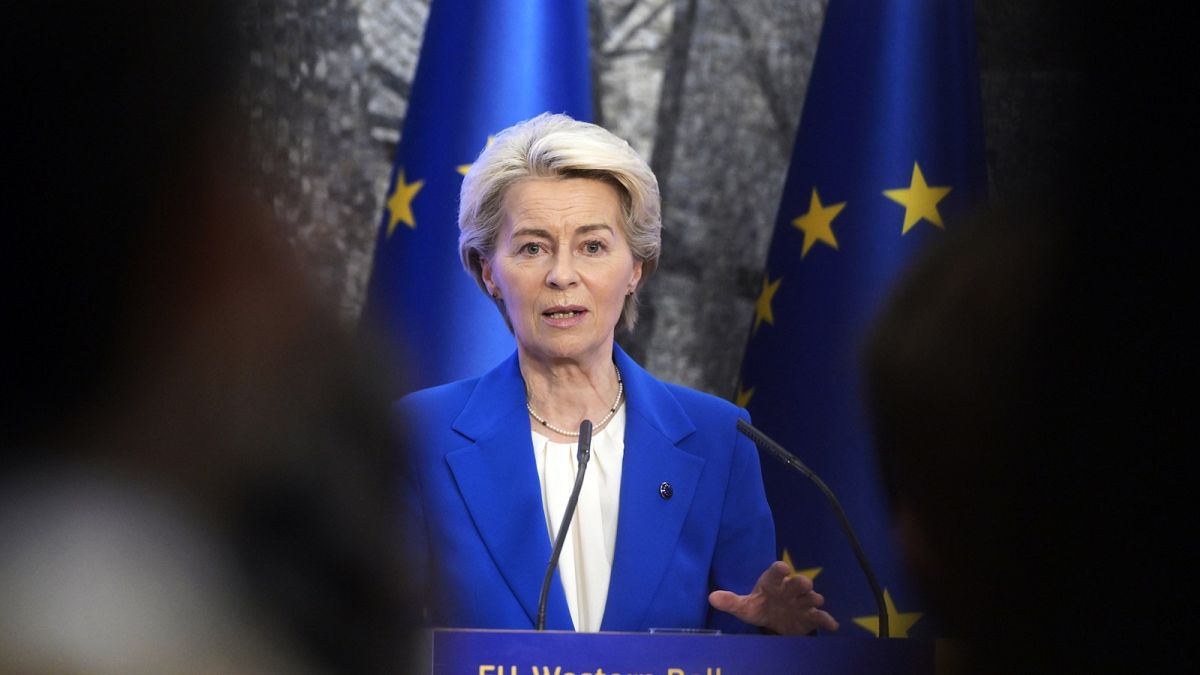The elections in Georgia have been marred by reports of intimidation, coercion and vote-buying, prompting calls by the EU for swift investigations.
The European Union has urged the Georgian authorities to “swiftly, transparently and independently” investigate reported irregularities in the parliamentary elections on Saturday. The closely watched poll saw the ruling party, Georgian Dream, win a majority of seats with 54% of all votes, followed at a distance by several opposition parties.
A joint observation mission led by the Organization for Security and Co-operation in Europe (OSCE) said the elections were “well organised and orderly” but found a “tense environment” and “widespread reports of pressure on voters”, including cases of intimidation, coercion and vote-buying that “compromised” the secrecy of the vote.
“Those irregularities must be clarified and addressed. That is a necessary step to re-building trust in the electoral process,” the European Commission and High Representative Josep Borrell said in a joint statement, stressing the need for “constructive and inclusive dialogue across the political spectrum.”
Prime Minister Irakli Kobakhidze sought to minimise the accusations, telling the BBC the elections were “in line with legal principles” and that “irregularities happen everywhere, in every country.” By contrast, President Salome Zourabichvili, denounced a “total falsification” of the votes under Russian influence and called on citizens to protest.
EU-Georgia relations have severely deteriorated under Kobakhidze’s rule, derailing the country’s long-held aspirations to join the bloc.
Brussels has censured Georgian Dream for introducing legislation that weakens the country’s democracy and emulates Russian authoritarianism. A highly controversial law that creates a public register of foreign-funded media outlets and NGOs prompted EU leaders to freeze Georgia’s accession process. The ruling party’s threat to outlaw its main opponents and a new bill curbing LGBT rights fuelled further criticism.
“The EU calls on Georgia to adopt democratic, comprehensive and sustainable reforms, in line with the core principles of European integration,” the joint statement said.
“In this context, the EU recalls that any legislation that undermines the fundamental rights and freedoms of Georgian citizens and runs counter to the values and principles upon which the EU is founded must be repealed.”
Charles Michel, the president of the European Council, used similar language to urge the Georgian authorities to “seriously” address the irregularities. Michel said EU leaders would “set the next steps in our relations with Georgia” when they meet next week in Budapest and discuss the latest developments.
However, it is unclear if the 27 heads of state and government will manage to close ranks and build a united front.
The summit’s co-host, Prime Minister Viktor Orbán, was the first to congratulate Kobakhidze and Georgian Dream for their “overwhelming victory”. Shortly after, Orbán’s office announced he would travel to Georgia to meet with the prime minister.
Diplomats in Brussels have grown exasperated with Orbán’s free-wheeling diplomacy, which triggered a boycott against the country’s presidency. Still, all leaders, including Charles Michel and Ursula von der Leyen, are expected to attend the Budapest summit.
Orbán’s trip to Tbilisi “takes place exclusively in the framework of bilateral relations between Hungary and Georgia,” a European Commission spokesperson said on Monday. “Prime Minister Orbán has not received any mandate from the EU Council to visit Tbilisi.”

